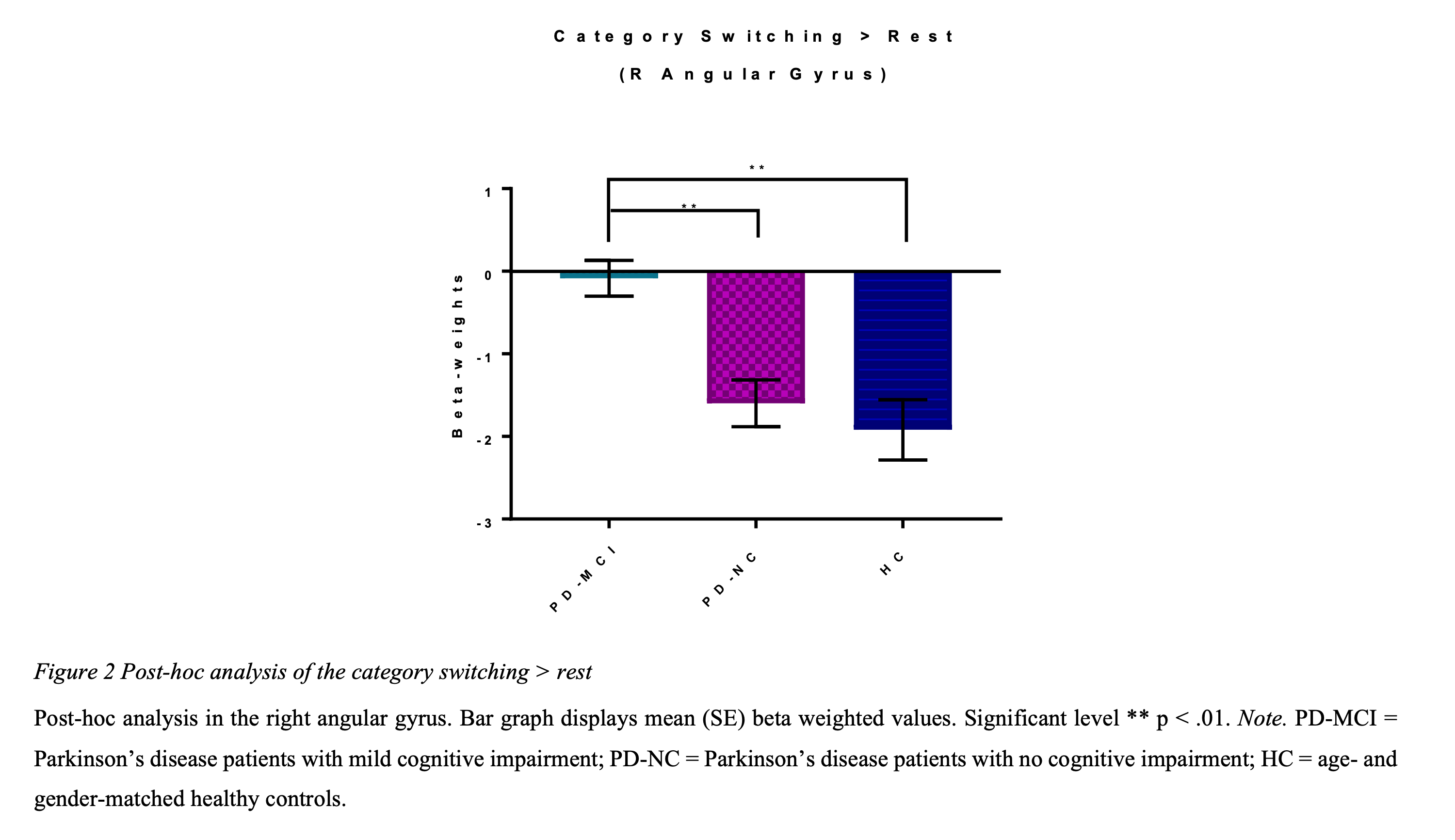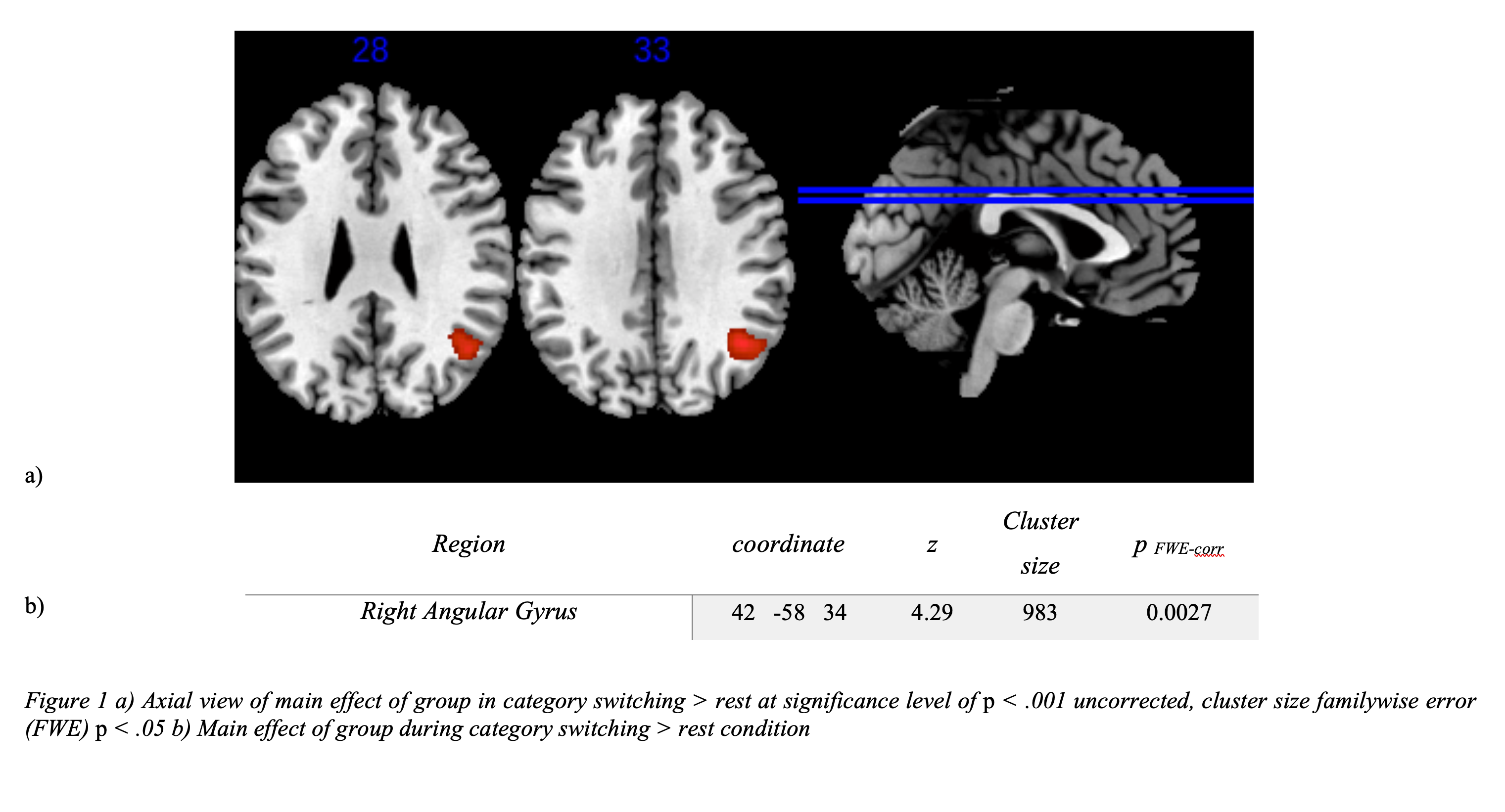Category: Parkinson's Disease: Neuroimaging
Objective: To explore neural mechanisms related to semantic fluency deficits in Parkinson’s disease (PD).
Background: Verbal fluency impairments are the earliest and typical cognitive deficits in PD, particularly in patients with mild cognitive impairment (MCI). Impairment in semantic fluency predicts increased susceptibility to progression to PD dementia (PDD). However, to date, there are no studies investigating underlying neural mechanisms of verbal fluency deficits in PD. This study investigates the performance of three different types of verbal fluency; phonemic, semantic, and semantic switching, in PD patients with and without MCI. Neural underpinnings of semantic fluency deficits in PD patients with and without MCI is also examined.
Method: Thirty-seven (37) PD patients and 20 gender- and age-matched HC completed an assessment package and fMRI. Thirteen (13) PD patients fulfilled criteria for PD-MCI according to the MDS task force criteria. Participants completed DKEFS verbal fluency tests including, phonemic, semantic and semantic switching in 60s for each test. Participants were scanned (3T Siemens PRISMA) whilst performing semantic fluency tasks consisting of category generation, category switching, and automatic response. The number of responses, number of errors, and fMRI data were analysed for category generation and category switching.
Results: PD-MCI performed significantly worse than PD-NC and HC during phonemic fluency, semantic category fluency and semantic category switching tasks. There was no difference between PD-NC and HC. Phonemic fluency impairment was greater than the semantic fluency impairment in PD-MCI group. During category generation and category switching tasks patients with PD-MCI performed significantly worse than PD-NC and HC. Patients with PD-MCI showed greater activity in the right angular gyrus compared to PD-NC and HC during category switching. Increased activity correlated with worse verbal fluency performance during the semantic fluency task.
Conclusion: Our study provided promising evidence of impaired verbal fluency in PD-MCI compared to PD-NC and HC. Increased right angular gyrus activity in PD-MCI during semantic switching suggests additional recruitment of the brain possibly due to inefficient activation in the task dominant region or impaired inhibition of the non-dominant region.
This abstract was submitted to NHMRC Australian Dementia Forum (31 May – 2 June 2020)
To cite this abstract in AMA style:
J. Yang, G. Byrne, J. O'Sullivan, K. McMahon, D. Copland, N. Dissanayaka. Neural Correlates of Semantic Fluency Deficits in Parkinson’s Disease with Mild Cognitive Impairment [abstract]. Mov Disord. 2020; 35 (suppl 1). https://www.mdsabstracts.org/abstract/neural-correlates-of-semantic-fluency-deficits-in-parkinsons-disease-with-mild-cognitive-impairment/. Accessed December 13, 2025.« Back to MDS Virtual Congress 2020
MDS Abstracts - https://www.mdsabstracts.org/abstract/neural-correlates-of-semantic-fluency-deficits-in-parkinsons-disease-with-mild-cognitive-impairment/


